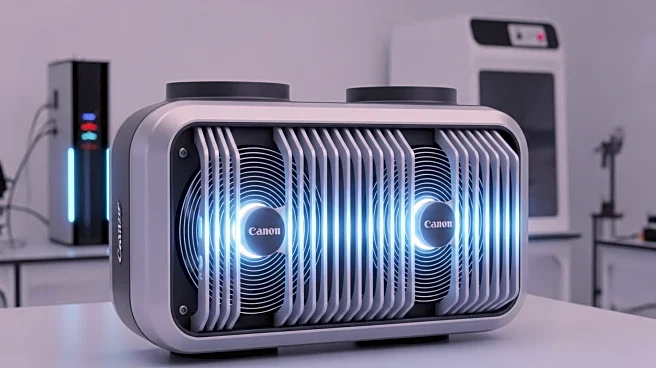What's Happening?
Researchers at the Johns Hopkins Applied Physics Laboratory have developed a new solid-state thermoelectric refrigeration technology using nano-engineered materials, significantly improving efficiency. The technology, known as controlled hierarchically engineered superlattice structures (CHESS), offers twice the efficiency of existing thermoelectric materials. This advancement provides a scalable alternative to traditional compressor-based refrigeration, with potential applications ranging from small-scale systems to large building HVAC systems. The development marks a significant leap in cooling technology, with implications for energy-efficient refrigeration solutions.
Why It's Important?
The breakthrough in thermoelectric refrigeration technology addresses the growing demand for energy-efficient cooling solutions amid population growth and urbanization. By eliminating the need for chemical refrigerants and moving parts, the technology offers a sustainable and compact alternative to conventional systems. The increased efficiency could lead to reduced energy consumption and environmental impact, benefiting industries reliant on cooling technologies. The scalability of CHESS materials may drive widespread adoption, influencing the future of refrigeration and HVAC systems.
What's Next?
Johns Hopkins plans to continue refining the CHESS technology, aiming to boost efficiency to match conventional mechanical systems. Future efforts include demonstrating larger-scale refrigeration systems and integrating AI-driven methods to optimize energy efficiency. The technology's potential extends beyond refrigeration, with applications in energy harvesting and electronics. Continued research and collaboration with industry partners may lead to practical, real-world applications, transforming cooling technologies and contributing to sustainable energy solutions.











